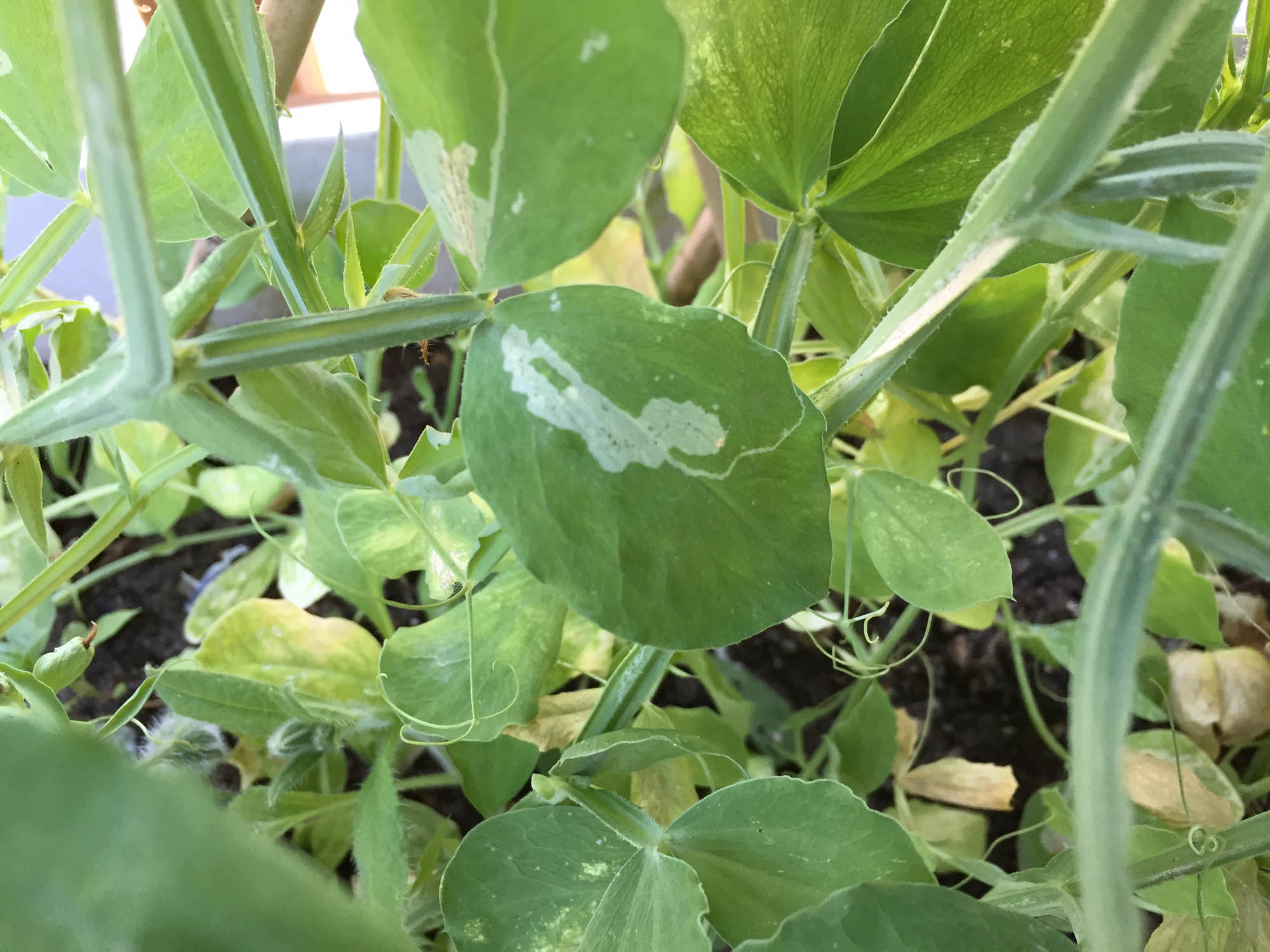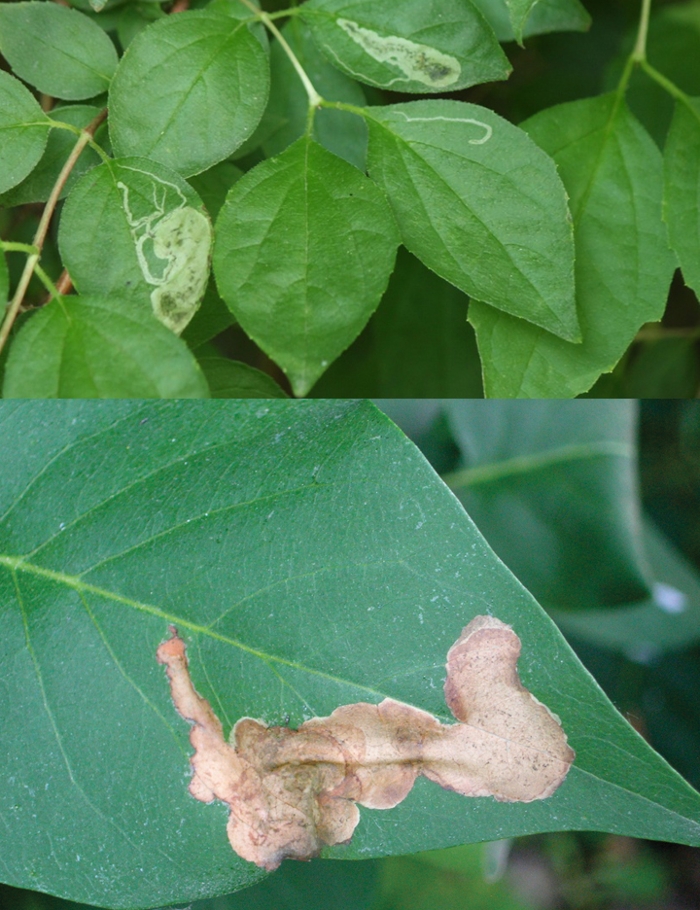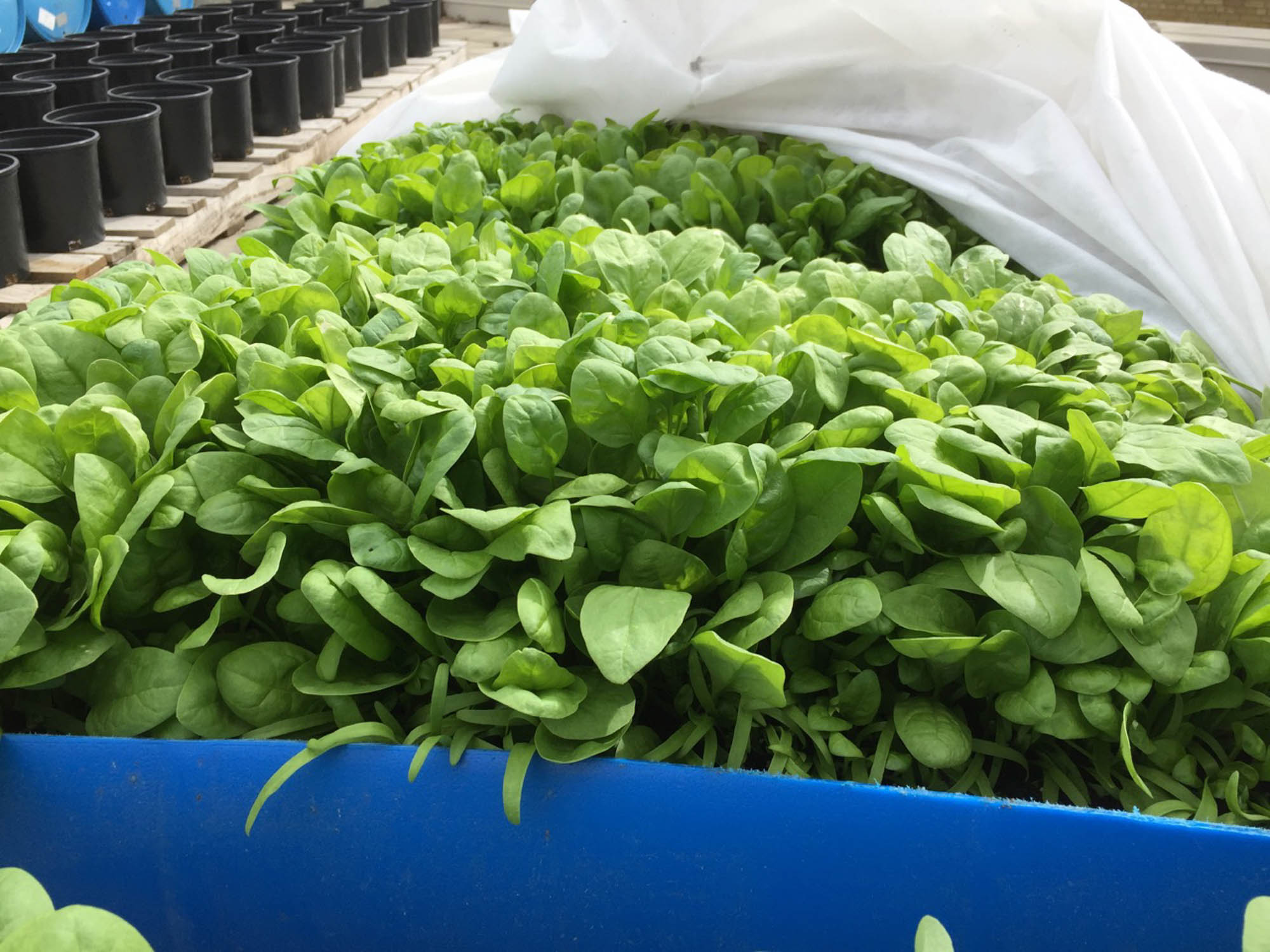
Leaf miner
Nuisance

There are many different species of small flies (or in some cases moths) that cause leaf miner damage and most have specific host plant preferences. The adult flies or moths puncture the leaf and insert an egg, which hatches into a larva. The larva tunnel between the layers of the leaf, feeding as they go, causing the winding, tracking patterns on the leaves. Once the larva is mature, it drops out of the leaf to pupate in the soil.
Leaf miners can infest the leaves of annual or perennial flowering plants. It is fairly common in columbines. However, the Japanese fan columbines (Auilegia flabellata) are more resistant than other columbines.
Other leaf miners can affect edible leafy vegetables such as spinach, beet and lettuce leaves, making them unappetizing and inedible.
Trees and shrubs (such as lilac) can also get leaf miners. Usually the damage is cosmetic and does not affect the health of the plant. However, on elm trees, specifically the Manchurian elm, the larvae can do so much damage that the tree will drop all the infected leaves leaving the tree bare. If it continues to defoliate the tree for more than 3 years, it can kill the entire tree.
Control:
- To check for leaf miner, use a pin or sharp blade to open up the leaf layer and check for a tiny larva. The larva also leave black frass (excrement) inside the layers.
- Press the leaf to squish the leaf miner, but leave the leaf intact on the plant. Removing affected leaves is also an option, but leaves that are left intact still photosynthesize, which is beneficial for the plant.
- Row covers are very effective for preventing egg laying.
- At the end of the growing season, remove and destroy dead plant debris which may harbour the pupae.
- Chemical control is not recommended for the home garden because it harms beneficial insects. Chemicals are completely ineffective against leafminers because the larvae are protected by the leaf layers.
Sources:
Philip, H., Mengersen, E. (1993). Insect pests of the prairies. Edmonton, Alberta: University of Alberta Press.
Williams, S.; Skinner, H. (2011). Gardening, naturally: A chemical-free handbook for the Prairies. Regina, Saskatchewan: Coteau Books.


